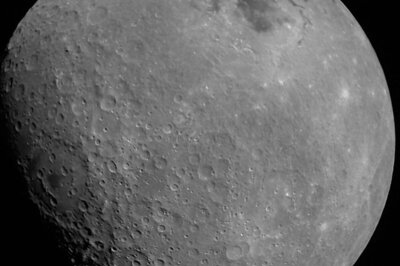
views
In a stunning comeback, Brazilian president-elect Luiz Inacio Lula da Silva narrowly defeated the far-right incumbent Jair Bolsonaro. After a divisive campaign which saw the two bitter rivals on opposite sides of the political spectrum go head-to-head, Lula won 50.9 percent of the votes.
While Lula supporters around the country erupted into celebration after his victory, Bolsonaro supporters gathered in the capital Brasilia refusing to accept the results.
However, things are not going to be easy for Lula, who faces immense challenges in South America’s largest country.
News18 takes a look at some of the pressing issues which have been dominant in Brazil’s politics and led to Bolsonaro’s downfall:
Poverty
Despite being one of the biggest food producer, the country has 33 million people facing acute hunger while 100 million live in poverty, which is highest in recent years, a report in The Guardian said.
“We can’t accept it as normal that in this country millions of men, women and children don’t have enough to eat,” Lula da Silva said while addressing a crowd. “If we are the world’s third biggest producer of food and the biggest producer of animal protein … we have the duty to guarantee that every Brazilian can eat breakfast, lunch and dinner every day.”
Deep inequality
One of the mammoth tasks before the new president is to tackle the deep inequality and violent crimes in the country.
With 47,503 murders in 2021, Brazil is one of the world’s most violent countries, accounting for a fifth of global homicides. In 2021, a rape occurred every 10 minutes, according to the Brazilian Forum on Public Safety.
Glaring inequalities were worsened by the Covid-19 pandemic. The country has several thousand impoverished “favelas” or shantytowns.
The number of people living under the international poverty threshold of $5.50 a day leaped from 24 percent to 30 percent between 2014 and 2022, according to the Getulio Vargas Foundation.
Hunger affects 33.1 million of the country’s 214 million inhabitants, according to the Brazilian Research Network on Food Sovereignty and Security.
Infrastructure
Apart from making promises to eradicate hunger, Lula has promise to build more affordable housing, and take electricity and water to unconnected and far-flung villages.
He has also promised to provide funding from state banks for major infrastructure projects, which includes public transportation, energy and water.
Tax reform and an increase in the minimum wage is also in the agenda before the new president.
Deforestation
Though for many Brazilians, economy, crime, education and corruption remained the top worries, in the western part of the country, the plight of Amazon, the world’s largest rainforest was also seen as a key issue.
Brazil contains about 60 percent of the Amazon, the world’s largest rainforest and a cradle of biodiversity.
But the Amazon is in growing peril due to massive deforestation on Bolsonaro’s watch, with thousands of fires consuming 3,750 square kilometers of forest in the first half of 2022 alone.
The issue was largely absent from the election campaign, which was marked by disinformation and extreme polarization.
Lula is expected to halt Bolsonaro’s development-at-all-costs policies that has encouraged ranchers and loggers to besiege the Amazon and plunder its natural resources. Lula has promised to “aim for zero deforestation” but will be satisfied if his government can lower deforestation by 83 percent as was seen under Lula and Dilma between 2003 and 2014.
Read all the Latest News here



















Comments
0 comment